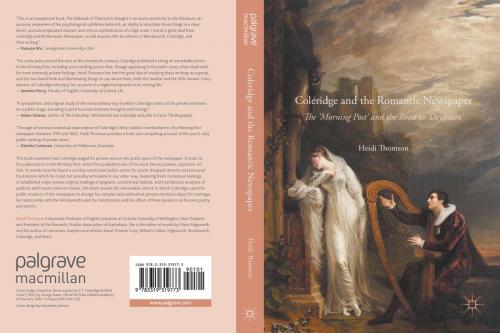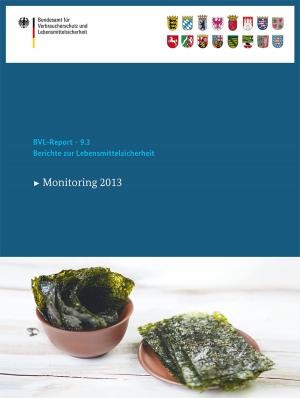Coleridge and the Romantic Newspaper
The 'Morning Post' and the Road to 'Dejection'
Fiction & Literature, Literary Theory & Criticism, Poetry History & Criticism| Author: | Heidi Thomson | ISBN: | 9783319319780 |
| Publisher: | Springer International Publishing | Publication: | September 24, 2016 |
| Imprint: | Palgrave Macmillan | Language: | English |
| Author: | Heidi Thomson |
| ISBN: | 9783319319780 |
| Publisher: | Springer International Publishing |
| Publication: | September 24, 2016 |
| Imprint: | Palgrave Macmillan |
| Language: | English |
This book examines how Coleridge staged his private woes in the public space of the newspaper. It looks at his publications in the Morning Post, which first published one of his most famous poems, Dejection. An Ode. It reveals how he found a socially sanctioned public outlet for poetic disappointments and personal frustrations which he could not possibly articulate in any other way. Featuring fresh, contextual readings of established major poems; original readings of epigrams, sentimental ballads, and translations; analyses of political and human-interest stories, this book reveals the remarkable extent to which Coleridge used the public medium of the newspaper to divulge his complex and ambivalent private emotions about his marriage, his relationship with the Wordsworths and the Hutchinsons, and the effect of these dynamics on his own poetry and poetics.
This book examines how Coleridge staged his private woes in the public space of the newspaper. It looks at his publications in the Morning Post, which first published one of his most famous poems, Dejection. An Ode. It reveals how he found a socially sanctioned public outlet for poetic disappointments and personal frustrations which he could not possibly articulate in any other way. Featuring fresh, contextual readings of established major poems; original readings of epigrams, sentimental ballads, and translations; analyses of political and human-interest stories, this book reveals the remarkable extent to which Coleridge used the public medium of the newspaper to divulge his complex and ambivalent private emotions about his marriage, his relationship with the Wordsworths and the Hutchinsons, and the effect of these dynamics on his own poetry and poetics.















